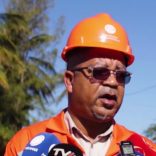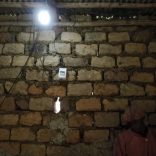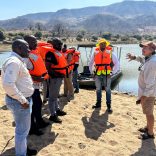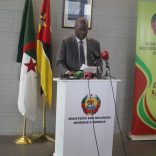Mozambique: Vandalism causes power outage in Xai-Xai neighbourhood - Watch
Mozambique: Gas production estimated to grow only 1% in 2024 – consultants

FILE - For illustration purposes only. [File photo: Notícias]
BMI Research estimates that natural gas production in Mozambique will only increase by 1% next year, a significant slowdown compared to the 47% growth expected this year.
“We anticipate that the growth of gas production in Mozambique will undergo a sudden slowdown, following the start of CoralFLNG’s activity this year, and we anticipate a minimum growth of 1% in 2024, a substantial drop compared to the 47% recorded this year,” in a total of 9.2 billion cubic metres, reads an analysis note on natural gas production in this Portuguese-speaking African country to which Lusa had access on Friday.
In the report, sent to clients, the analysts also predict that over the next few years there will be “a vacuum of new projects”, so that by 2027 natural gas production should be at the same level as this year, with only small projects being able to come on stream and perhaps being cancelled out by natural decline rates”.
In September, TotalEnergies confirmed that it expected to begin commercial operations in 2028, after previously indicating a date of 2027, which started out as 2024, until the armed conflict in the north of the country forced the suspension of the French company’s operations in Cabo Delgado.
Among the main strengths of the gas projects in the country, BMI Research points to the strong potential of the Mozambican coast, the geographical position in relation to the Asian market and the fact that the new projects will place the country among the world’s main exporters.
On the other hand, the main weaknesses are the underdeveloped infrastructure and domestic demand, as well as the delay in implementing the regulatory framework for gas exploration on the mainland.
Mozambique has three development projects approved to exploit the natural gas reserves in the Rovuma basin, classified among the largest in the world, off the coast of Cabo Delgado.
Two of these projects are larger and involve channelling the gas from the seabed to land, cooling it in a plant to export it by sea in a liquid state. One is led by TotalEnergies (Area 1 consortium) and work progressed until it was suspended indefinitely after an armed attack on Palma in March 2021, when the French energy company declared that it would only resume work when the area was safe.
The other is the still unannounced investment led by ExxonMobil and Eni (Area 4 consortium).
A third completed, smaller project also belongs to the Area 4 consortium and consists of a floating platform to capture and process gas for export, directly at sea, which started up in November 2022.
The floating platform is expected to produce 3.4 mtpa (million tonnes per year) of liquefied natural gas, Area 1 is aiming for 13.12 mtpa and the onshore plan for Area 4 envisages 15 mtpa.
Cabo Delgado province has been facing an armed insurgency for five years, with some attacks claimed by the extremist group Islamic State.












Leave a Reply
Be the First to Comment!
You must be logged in to post a comment.
You must be logged in to post a comment.